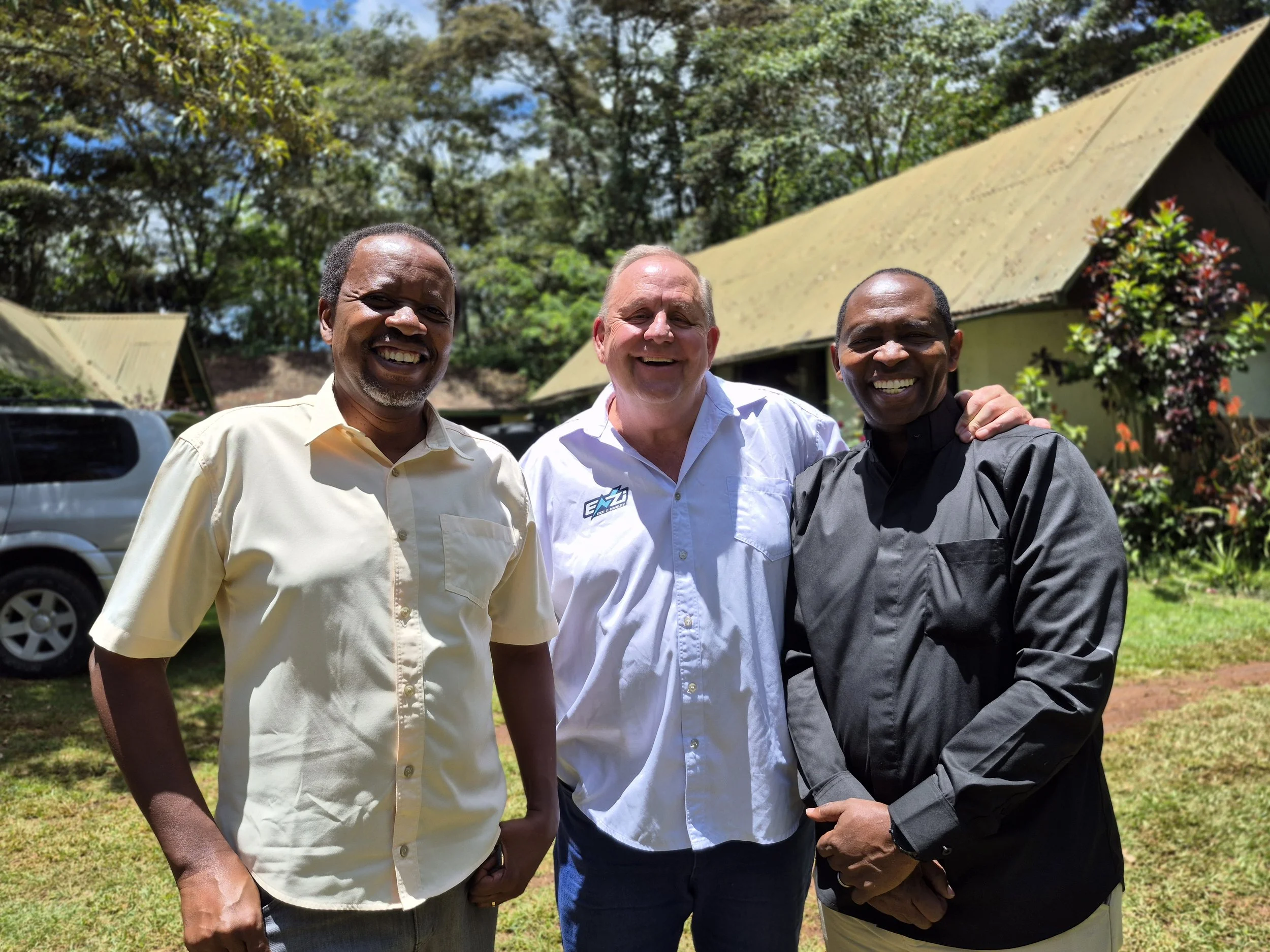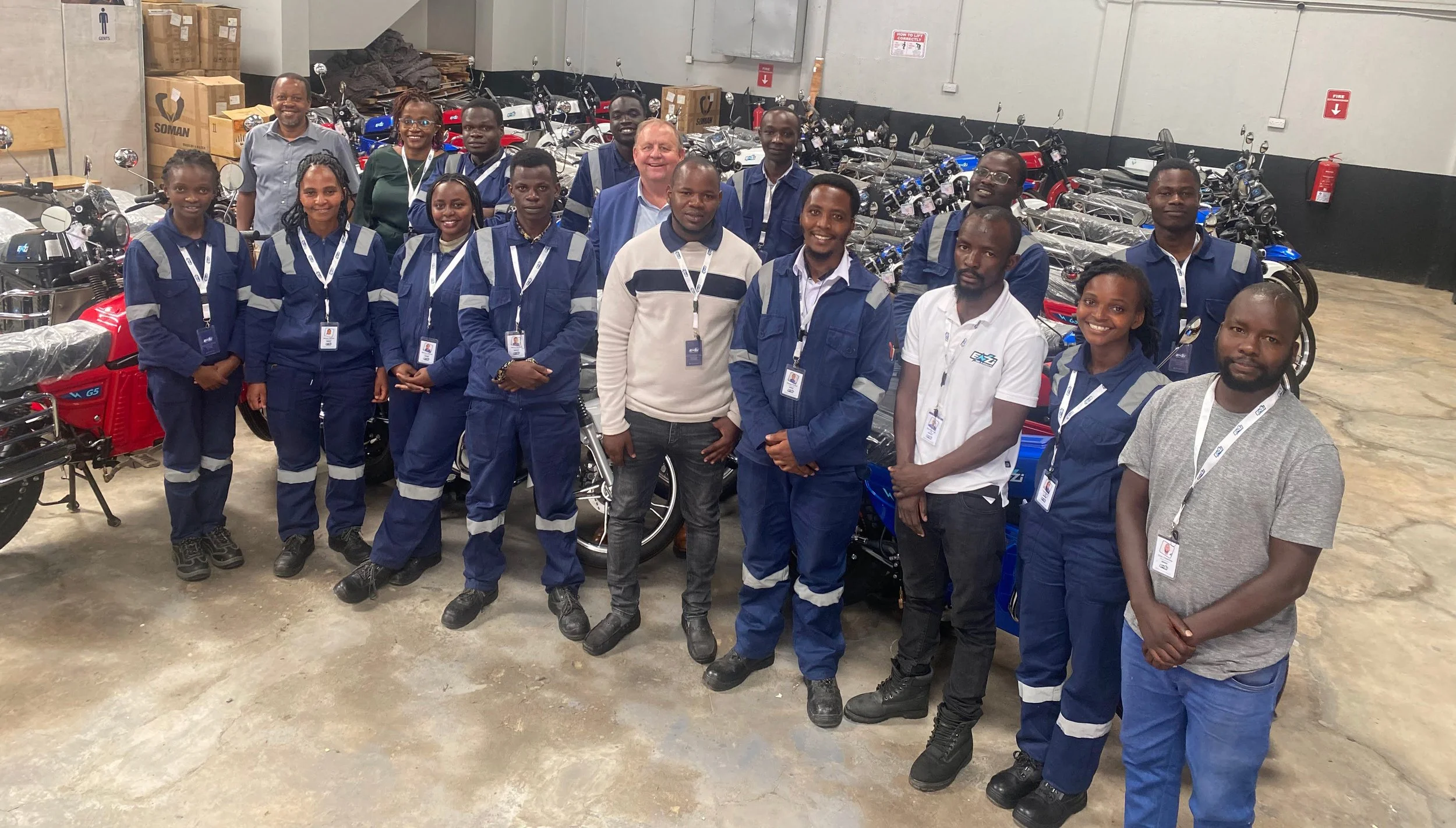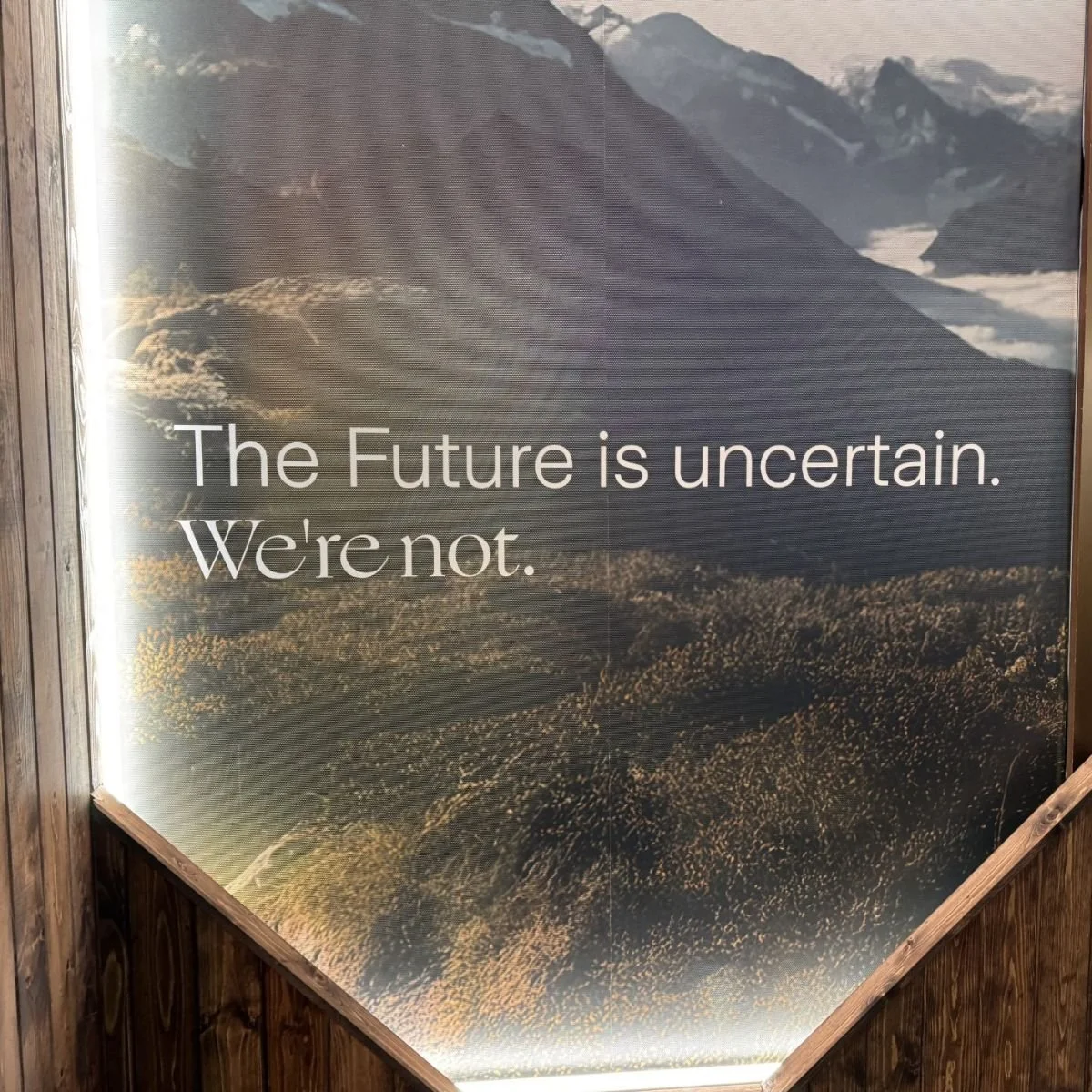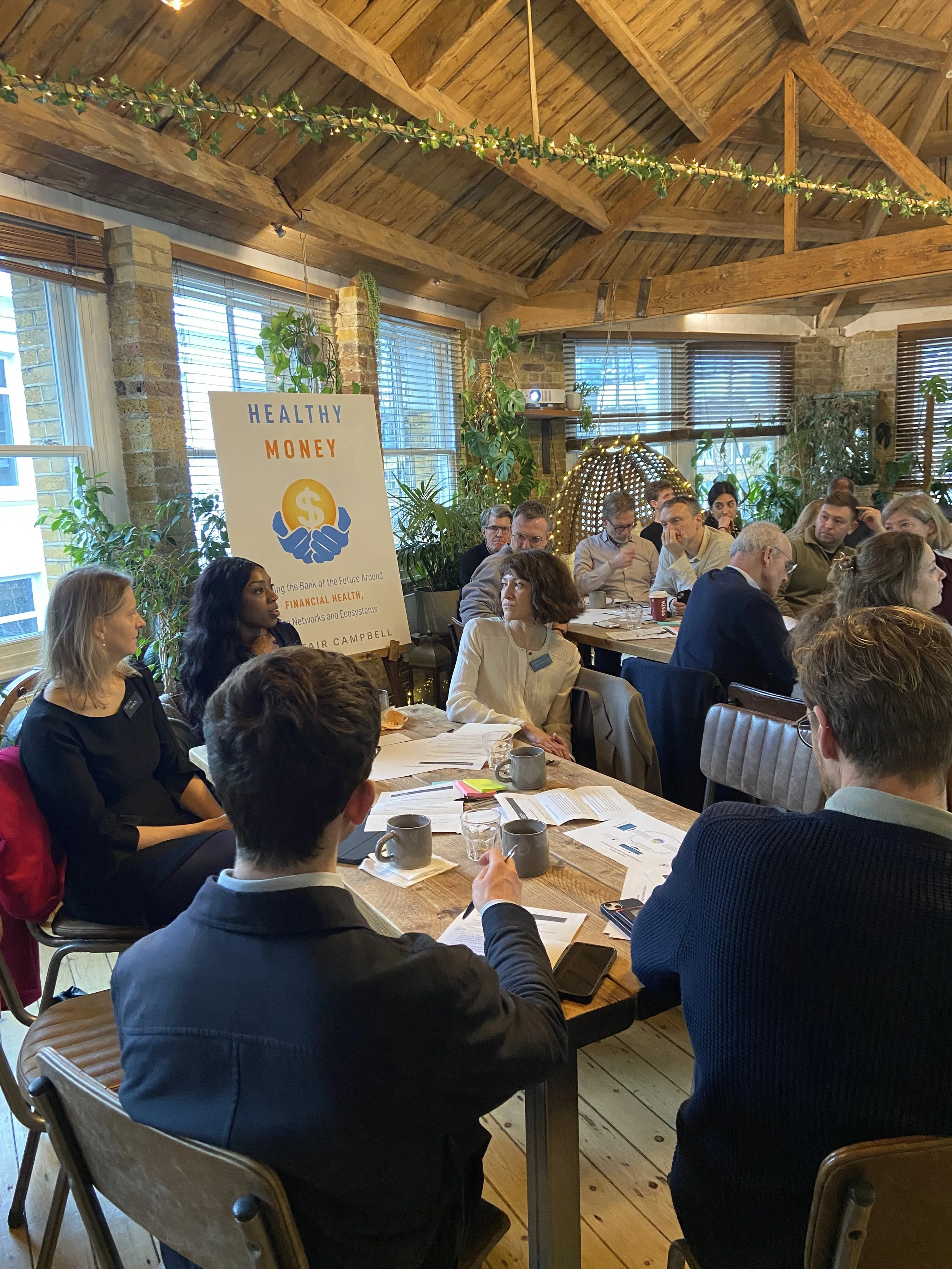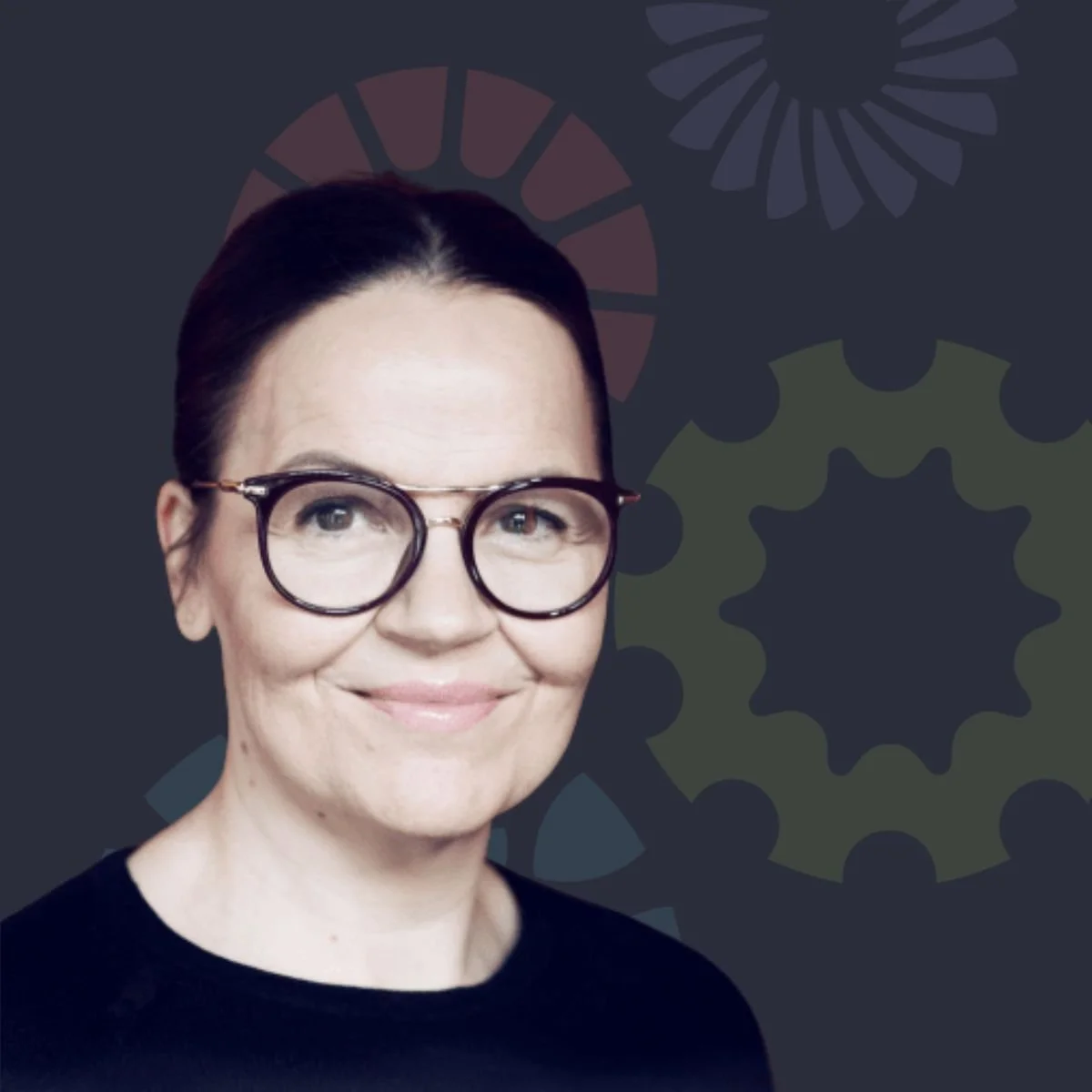Why I Built Enzi With Purpose Beyond Profit
July 2025 | Economics of Mutuality Leaders Stories
A Conversation With Bill Schafer
Bill is the Founder of Enzi Motors, an organization that is tackling the challenge of last mile logistics in Africa. With over 25 years of executive leadership experience spanning multiple industries, Bill has built his career founded on innovation, sustainable growth, and measurable social impact.
Currently serving as CEO of Enzi, Bill leads with a commitment to holistic business improvement that prioritizes sustainability, fair compensation, and community impact. His first venture in Africa established a botanical extraction company in Kenya, which created employment for over 150 individuals and improved the lives of 40,000+ families.
Beyond his professional achievements, Bill advocates for living wages, personal and professional growth, and respect for all individuals, making social impact a core standard across his business ventures. His leadership philosophy centers on creating shared prosperity and redemptive business practices, ensuring that profit and positive impact coexist in every endeavor.
In this interview, Bill reflects on his journey—from riding motorcycles in the US as a young man to leading Enzi’s transformative work in last-mile logistics across Kenya. He discusses the challenges, lessons, and vision that continue to fuel his commitment to purpose-driven leadership and shared prosperity.
What inspired you to start Enzi, and what values drive your work today?
As a tech founder, I love to solve challenges by applying new technology. In Kenya—as in much of Africa—motorcycles are everywhere. There are over three million in Kenya alone. I did some research and discovered that these motorcycles are the last-mile logistics system in Africa.
I grew up riding motorcycles, and I worked blue-collar jobs until I could save enough money to go to college. So, I know what it’s like to work in the rain and the mud—and I have a real affinity for the people who do.
As an engineering student in the 1990s, I led a team that built a prototype hybrid electric vehicle for Ford. Later, I worked at a small EV company called Unique Mobility. Back then, battery costs made the technology economically impractical. But that's changed dramatically: prices have dropped tenfold in the past decade while energy density has improved substantially.
I had seen articles about electric scooters in Asia and thought that maybe a stronger version of a two-wheeler could work for last-mile logistics in Kenya. So, I did some analysis and found that using electric motorcycle batteries costs about half of what these drivers spend on gasoline. That’s when I realized there was a viable business case.
There’s a powerful African concept called Utu—the idea of humanity and moral goodness. Another is shared prosperity. It’s rewarding to know that what we do not only helps lift our customers into the middle class but also creates meaningful economic opportunities for Kenya communities.
I believe business should be a force for good. That’s why I’m passionate about our redemptive business model. We go beyond profit to transform lives through sustainable e-mobility solutions. Sustainable transport needs sustainable business models.
Our mission is to lift individuals and communities through holistic solutions that improve financial, mental, social, and environmental well-being. This commitment drives every decision I make—and reflects our vision of a “Power-Full-Life” for African communities.
I value innovation and continuous learning, because staying at the forefront of technology is essential to delivering the best solutions for our customers. Equally important are the values of transparency, integrity, and building valuable relationships—they guide how I interact with my colleagues and stakeholders.
Ultimately, I’m driven by the belief that through innovation, teamwork, and a commitment to safety and reliability, we’re transforming mobility and creating lasting positive impact across Kenya. The most sustainable profit comes from sustainable relationships.
Bill and the team at Enzi Motors
How did you first learn about the Economics of Mutuality (EoM) operating model, and what stood out in the Leading With Purpose executive education program?
Someone gave me a copy of Completing Capitalism when I first arrived in Kenya eight years ago. At the time, I had built several companies and was mainly focused on making a profit.
The book changed my life—it impacted my worldview. Really, it was transformational. I began to see how a company could create value in a more holistic way. It’s not just about doing your business and making money, then tagging on ESG or CSR. Mutual value creation can be the core of the company. The book presented a different framework for thinking about business relationships and stakeholder value. The future belongs to businesses that lift everyone up.
The Executive Education program provided practical tools to help implement these concepts. Two things particularly stood out: first, the process of defining company purpose beyond profit maximization; and second, understanding how to position the company as one stakeholder among many, rather than at the center of everything.
So, we built the company on the principles of EoM from the beginning. We incorporate the approach in everything—from design and engineering to our go-to-market strategy, customer interactions, and how we relate to our team. When everyone wins, everyone thrives. That's the Economics of Mutuality.
What does putting purpose into practice look like in your daily work at Enzi?
I focus on communicating our purpose consistently through both policy decisions and daily operations. The team needs to understand why we prioritize certain approaches, because they carry that understanding into every customer interaction. EoM principles are the rallying flag, the big-picture goal that guides us.
Our operational principle is simple: keep our customers moving. The motorcycle taxi and delivery drivers we serve are essential infrastructure for Kenya’s economy. On average, each driver supports eight people with their income. When they have downtime, they lose income, which has cascading effects on their families and communities.
We maintain nearly 100% uptime by investing in redundant systems and rapid response protocols. It costs more, but given our customers’ economic realities, it’s not optional—it’s necessary.
What is one key challenge you are tackling in Kenya's e-mobility space?
The primary challenge is reducing operational costs for motorcycle operators. Fuel is their largest expense, and our battery-swapping system can cut it by more than half.
Kenya generates about 95% of its electricity from renewable sources—hydroelectric, geothermal, solar, and wind. So, we're essentially converting renewable energy into transportation fuel. The economic impact is significant: motorcycle operators in Kenya collectively spend around $3 billion a year on imported gasoline. By switching to locally generated electricity, we keep that money within the Kenyan economy.
How has the Economics of Mutuality operating model changed how you work with partners and communities?
We've expanded beyond just selling equipment. We run a 10-week program called "Tech Talks" that covers financial literacy, first aid, and defensive driving. Since we help customers reduce their main operating cost significantly, they have additional income to manage.
We also work with financing partners to secure better terms for motorcycle purchases. We found that operators who own their motorcycles outright have 50% fewer accidents, which creates positive feedback effects.
These programs require additional investment, but they improve customer outcomes and business sustainability.
Can you share a moment when deep listening changed your direction?
Before developing our first product, we hired a social scientist and interviewed 500 motorcycle operators. We wanted to understand their priorities and daily challenges.
When we asked about their main goals, the top answer was, "I want to get home alive." That response changed our entire approach. We realized these operators face significant daily risks—there are even dedicated hospital wards for treating accident victims from this profession.
This feedback made safety our top engineering priority. Every motorcycle now includes two high-quality helmets. We added voice prompts in Swahili reminding operators to wear protective equipment. We have great brakes, and bright lights for visibility. We also provide ongoing safety training through continuous 10-week courses.
Enzi is one of the host companies for our first EoM Consultant Boot Camp in Nairobi. Why should someone join the boot camp? What can they expect?
I think there's a fundamental problem with how most businesses operate today. The focus on short-term shareholder returns has created systems that don't serve all stakeholders well, including employees, customers, and communities. The Economics of Mutuality operating model is the antidote to that. It’s an extraordinary, eye-opening approach to business at its core: business as a force for good.
Working in Kenya and applying these principles has shown me that these approaches aren't just theoretical. When you apply them properly, you can build profitable businesses that have a meaningful positive impact on society and staff. The electric revolution succeeds when it includes everyone.
I’m reluctant to use the phrase “social impact”, because it often brings up connotations of charity work or NGOs. The Economics of Mutuality is not that. It’s the best way to run a business, providing true competitive advantage at all levels and across the spectrum.
So, learning how to apply the Economics of Mutuality and teaching businesses globally how to excel at it is a great thing to do, and it is what participants can expect when they’ll join the boot camp with Enzi.
Oh and Kenya is a great place to visit!
This interview is part of the EoM Practitioner Stories series, which features individuals who are advancing and implementing the Economics of Mutuality operating model in their context.
To learn more about Bill and his work, you can visit his LinkedIn profile and the Enzi website.
Click here to find out more about the Leading With Purpose executive education program.
Interested in joining the EoM Consultant Boot Camp in Nairobi? Get all the details hereor email Alan Yeboah to find out how you can get involved.
If you are interested in discussing how we could support you with implementing the Economics of Mutuality in your context, please email hello@eom.org

